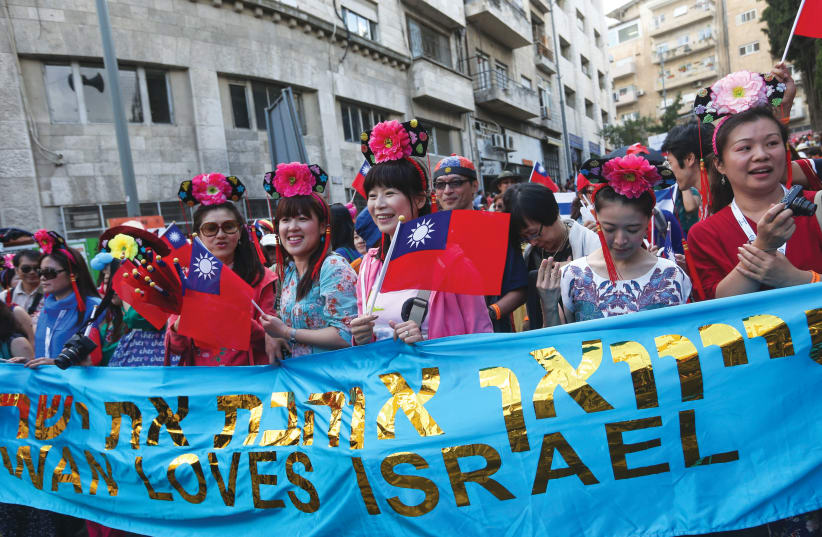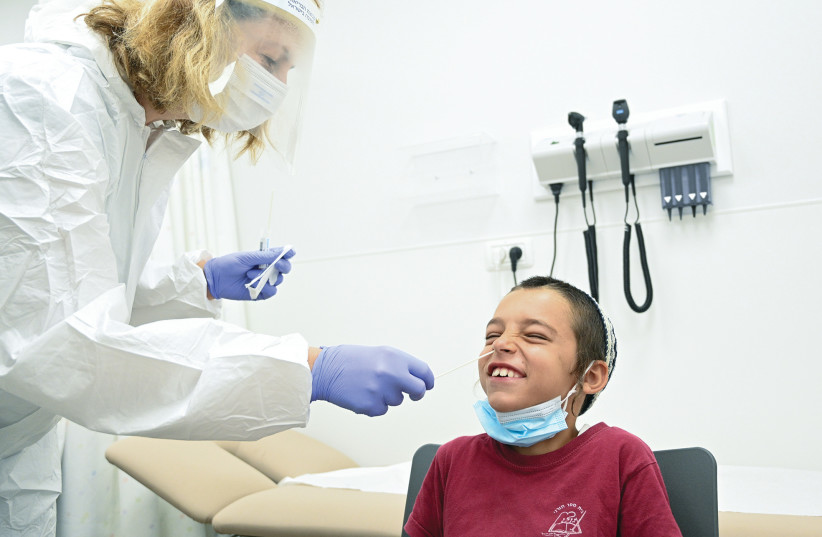The loss of millions of lives due to COVID-19 reminds us to work hand in hand to advance a global health coordination framework.
Israel’s Agency for International Development Cooperation, MASHAV, leads the country’s efforts in sharing expertise and tools with around 140 countries to help them achieve sustainable development. MASHAV’s equivalent in Taiwan, the Taiwan International Cooperation and Development Fund (ICDF), also aims to build local capacities to address social and economic challenges.
Spearheaded by the foreign ministries, both agencies design and carry out projects in public health, health emergencies, and many other fronts. For example, both countries provide medical and humanitarian assistance to Ukrainians, such as funding or establishing hospitals in Ukraine, in their fight against the authoritarian invasion.
World Health Organization
Drawing lessons from the COVID-19 pandemic, which sadly cost millions of lives globally, the annual assembly of the World Health Organization (WHO) this month is expected to discuss an international deal on the pandemic. The deal aims to introduce more robust instruments for future pandemic prevention, preparedness, and response measures. We believe the deal is a great stride in promoting better coordination among countries to tackle the next potential pandemic. However, this can only be achieved when all the stakeholders and contributors are involved in creating a seamless global health network.
Yet the inconvenient truth is that Taiwan has not been invited to join WHO’s assembly or most meetings since 2017, not to mention being fully integrated into the implementation of the international pandemic deal after its adoption. It is alarming because millions of people travel through Taiwan every year, and that one blind spot on the map can jeopardize the lives of not only 24 million Taiwanese people but the entire international community.
Taiwan was among the first countries to notice the early signs of the COVID-19 outbreak and quickly alerted the WHO and other countries, followed by immediate domestic control measures to curb the pandemic and the donation of 50 million medical masks to help first-line medical officers around the globe. Taiwan’s rapid response was applauded worldwide. We hope that what we went through during the COVID-19 years can keep us all vigilant about the danger of leaving any stakeholders outside of the coordination framework.
Taiwan and Israel share the value of universal health coverage, given the fact that both countries have well-recognized expertise, such as in providing quality public health care. According to the 2024 Health Care Index published by CEOWORLD Magazine, Taiwan and Israel both rank among the top 10 out of 110 countries, with high scores in medical infrastructure and professionals, medicine availability and cost, and government readiness. Taiwan continues to take steps to make the health care system more accessible and affordable for all, including integrating AI technology into digital and precision health establishments.
We are grateful to see that more and more like-minded countries know the importance of supporting Taiwan’s inclusion in the WHO. Officials from the United States and a growing number of countries have voiced their support. Last month, the G7 reaffirmed its support for Taiwan’s meaningful participation in international organizations, including the WHO’s assembly and meetings. US Secretary of State Antony Blinken strongly encouraged the WHO to reinstate an invitation to Taiwan on behalf of the US government for four consecutive years.
At this year’s assembly, WHO will organize the discussions around the theme of “All for Health, Health for All.” As Taiwan is committed to being “a force for good” in the international community, it is willing to share best practices and experiences with other peers, advance health welfare for all, and prevent future pandemics. Allowing Taiwan to participate in all WHO’s discussions can help create a seamless global health framework. At the end of the day, together, we become a strong “joint force for good” for all.
The writer is representative of the Taipei Economic and Cultural Office in Tel Aviv.

